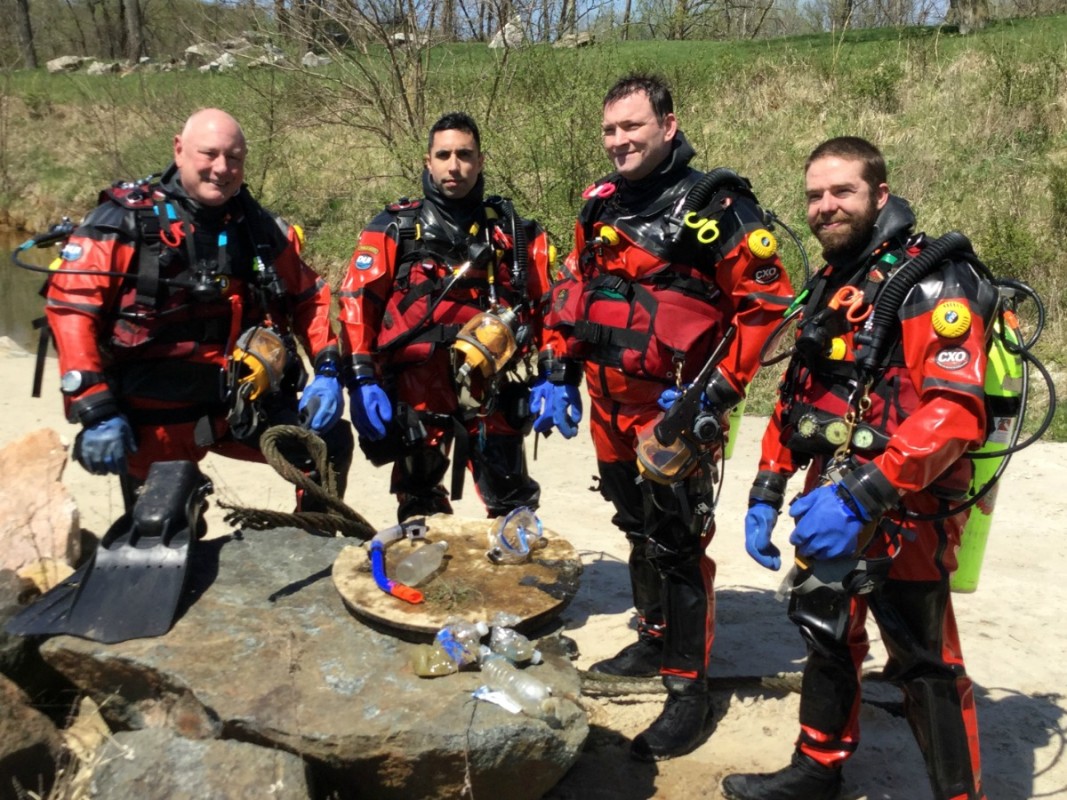Pro Tips from a Dive Against Debris Instructor

Since the launch of Project AWARE’s Dive Against Debris specialty course in 2014, PADI Instructor, Fletcher Ferguson, has made educating divers about the global marine debris problem one of his top priorities. Fletcher understands the devastating impact of trash in our ocean and recognizes the important role divers can play in preventing, removing and reporting debris found underwater.
In honor of Earth Day, Project AWARE catches up with Fletcher about his involvement with the Dive Against Debris specialty course. In a special interview, Fletcher shares his pro tips for mobilizing student divers into action and explains how he has certified the most Dive Against Debris students worldwide since the launch of this worthwhile specialty course.
What motivated you to begin teaching the Dive Against Debris specialty course?
I was delighted when the new Dive Against Debris course launched because so many of our divers are environmentally conscious. The new course enabled them to actually get in the water locally, make a positive contribution to the aquatic environment, and gain a specialty at the same time – they were immediately thrilled.
As soon as I became certified to teach the Dive Against Debris course, I began offering it as an immediate follow up to the Open Water Diver course, and the response was overwhelming. Every individual in the class signed up and had a ball! Students were not just interested in receiving the extra specialty, but in seeing the entire process through to completion and having their survey results entered in their My Ocean profiles and Dive Against Debris Map ...
Why do you feel it is important to conduct underwater marine debris surveys through Dive Against Debris?
As divers, we are passionate about the health of the oceans. We understand and enjoy the beauty, abundance, and benefits of a healthy ocean environment to everyone on the planet. Dive Against Debris gives us a structured process through which we can not only make a positive contribution to the health of the oceans, but, through our surveys, see the results of our actions.
What is your role in mobilizing divers into action?
As a professional dive educator, I think it’s important to not only be a teacher, but a coach and mentor to all of my students. There’s very little that is more motivating to me than to see their satisfaction and excitement when they accomplish what, to them, is a new and challenging endeavor. And, when their accomplishments encourage them to go further and become more involved in something I have such a passion for – ocean conservation – it’s icing on the cake!
What are your plans for the future regarding the Dive Against Debris specialty?
We set a goal of having 50% of our dive shop instructors certified to teach Dive Against Debris this year, and are close to that already. Our longer term goal is to achieve 100% Dive Against Debris instructor certification. The success of our first class is convincing! My next Open Water Diver class starts this month, and Dive Against Debris will again be offered as an immediate follow up to that class.
What is the most important action that individuals can take to protect our ocean?
Walk the walk. Educate others, divers and non-divers, about the importance of protecting our oceans, and reinforce it with our own actions. Participate in Dives Against Debris, waterway and shore-based clean-ups, avoid actions that are detrimental to the environment, and encourage others to do so as well.
Any last words?
Be creative. Look for ways to incorporate Project AWARE activities into your regular and existing programs. The dive industry is a business. Look for opportunities to use Project AWARE courses to not only increase environmental awareness, but to further your business Dive Against Debris is a great and immediate first step toward becoming a Master Scuba Diver. Once you’ve taken that first step, the other steps are a lot easier.



